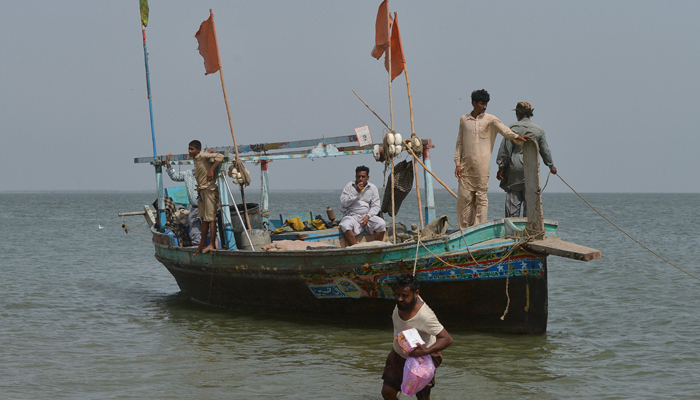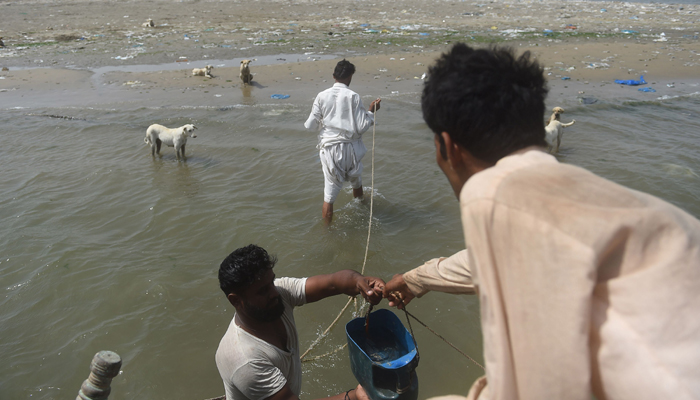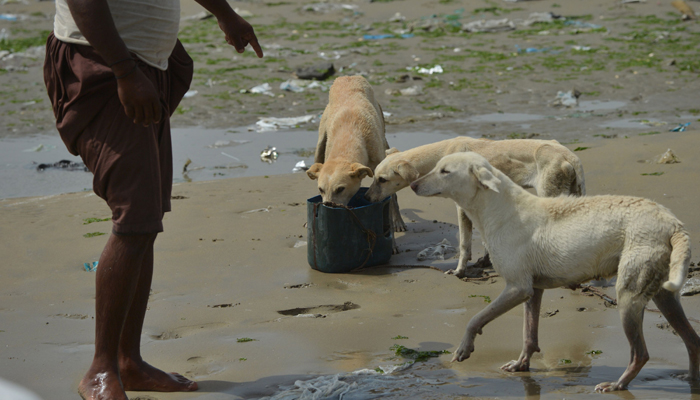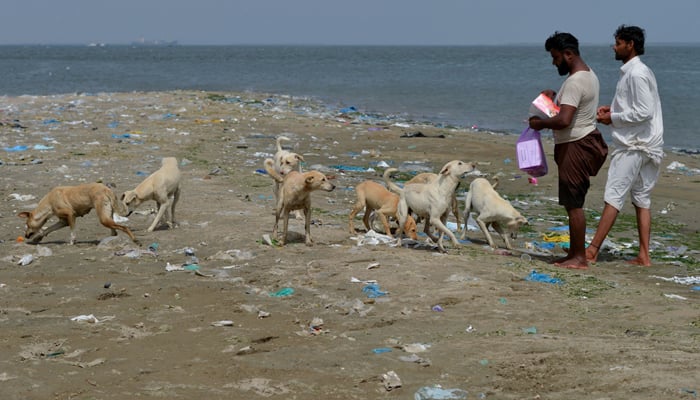More than a dozen decrepit dogs splash into the Arabian Sea as the small wooden boat approaches. They know the fishermen's mission: bringing food and water for the canine population of one of Karachi's "dog islands".
Fisherman Abdul Aziz feeds dogs on Dingy Island near Karachi — a sanctuary where the animals can avoid a cull on the city's feral dog population.
The boat, powered by an old jeep engine, stops when the water is still waist-high, two fishermen jumping from it to wade ashore the low, barren, waste-covered beach, whose only inhabitants are barking their welcome.

The island, known as Dingy or Buddo, is one of dozens populated by dogs that line the shore south of the sprawling port megacity.
Conservative figures estimate the feral dog population of Karachi could number up to 35,000.
The figures spark a brutal culling each year that sees bodies pile up in the streets, rotting in the sweltering heat as they wait to be bulldozed away.
The islands, despite their lack of food and fresh water, have become a sanctuary, an alternative where estimates suggest hundreds of dogs avoid the cull.

But their survival depends almost entirely on the supplies brought to them by Karachi's fishermen as they trawl the coast.
"We see them standing at the shore of the island in hope of food from us. So we feel their silent call," says Abdul Aziz, a 30-year-old fisherman, after feeding the dogs on Dingy Island some roti and water left over from their own supplies.
It is not known for sure who first brought dogs to the islands, but fishermen believe they were transported by villagers along the coastal areas seeking to save them from the cull.

Sometimes they scavenge dead fish that float ashore, or smaller animals on the outcrops. In desperation, they have been known to turn on each other for survival, the fishermen say.
With no fresh water source, compelled by thirst, they have also been known to drink the brackish water that forms in pools along the island shores, underscoring the urgency of the fishermen's mission.
On Dingy Island, the dogs leap around Aziz and his colleague Mohammad Dada, standing on their hind legs and pawing at the pair in the scramble for food and water.

Puppies are overrun by the larger dogs. But the kind fishermen make sure even the smallest get a share.
"A human being is nothing without humanity," Aziz says, looking at the island, where plastic bags and a syringe lie among the hungry creatures.
"When we feel the pinch of hunger and thirst, they also must be feeling it."
Comments
Post a Comment